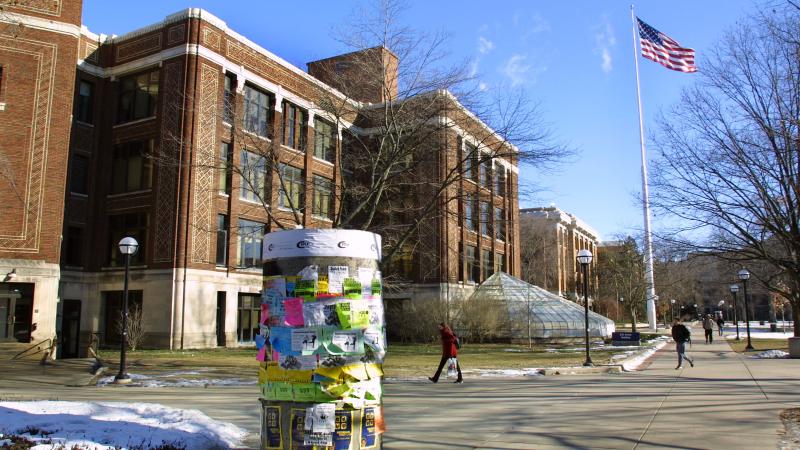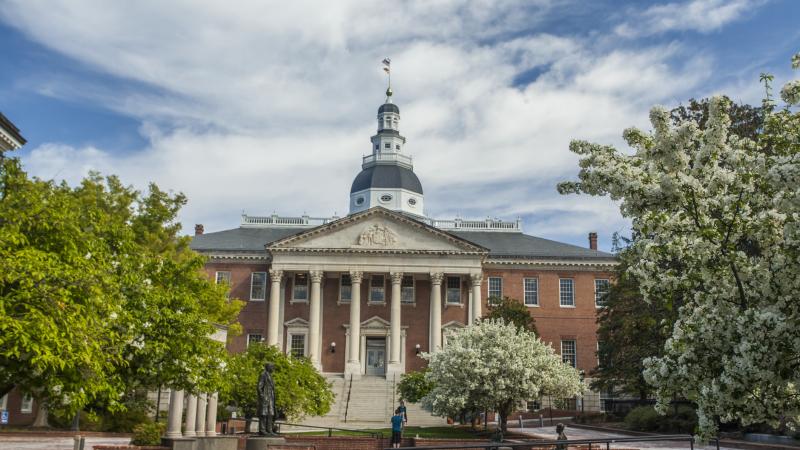Democrats, mainstream media get another Russia story wrong, adding to long list
Repeated errors raise concerns of desensitizing Americans to threat as prospect of Russian invasion of Ukraine looms.
Another widely reported news story on Russia has been undermined, continuing a years-long pattern of Democrats and U.S. media outlets pushing ultimately unfounded reports concerning Russia.
Most recently, the CIA determined in a new intelligence assessment that most cases of the unexplained medical symptoms known as Havana syndrome, which has afflicted U.S. diplomats and intelligence officials around the world, were not the result of an ongoing global campaign by a hostile foreign power aimed at injuring Americans.
"We assess it is unlikely that a foreign actor, including Russia, is conducting a sustained, worldwide campaign harming U.S. personnel with a weapon or mechanism," a senior CIA official told reporters.
The agency left the door open to the possibility that a small minority of Havana syndrome cases were attacks by foreign actors.
Before the CIA assessment, several mainstream media outlets reported that Russia was likely behind what they described as intentional attacks against U.S. officials. These reports often discounted a competing theory that Havana Syndrome was instead an unintended consequence of surveillance technology that directed microwave energy — and therefore radiation — to gather intelligence on the U.S.
NBC, for example, reported in September 2018 that Russia was "the main suspect" behind a wave of attacks "meant to hurt" American spies and diplomats, citing U.S. intelligence officials.
Russia's guilt was "more than a theory," NBC reported four months later, repeating that Russia was "the main suspect."
"This is not an accident," added network correspondent Andrea Mitchell. "This is not a microwave listening device gone bad. This is an attack — against American diplomats and intelligence officers, and this was targeting."
Veteran journalist Julia Ioffe echoed the same reporting last year in October, pointing to the "'medium confidence' intelligence" that Russia was responsible for the Havana syndrome.
"I always suspected that these illnesses were the product of deliberate attacks and that the Russian government was behind them," she wrote.
The CIA's new intelligence assessment, which was preliminary and not coordinated with the entire intelligence community, appears to contradict the widespread reporting that most if not all Havana syndrome cases are part of a coordinated Russian effort to hurt U.S. personnel.
However, the symptoms still could have been the result of foreign actors, including Russia, spying on Americans overseas.
"I believe it's probably a surveillance technique," said Fred Fleitz, a former CIA analyst who also served as a staffer on both the House Intelligence Committee and the National Security Council. "I don't think it was intended to harm people. But I believe that when it's fired it does significant damage to the brains of people in the vicinity."
Others note that, even if the mysterious symptoms resulted from surveillance operations, whoever was responsible knows by now that the technology they're using can hurt certain people.
"They simply don't care, and it might as well be categorized as a weapon," said Mark Zaid, an attorney who represents several government whistleblowers.
Havana Syndrome is not the first news story on alleged Russian malign activity that the media and Democrats pushing the press reports had to walk back. One such example concerns the now-infamous alleged bounties in Afghanistan.
The New York Times first reported in June 2020 that, according to anonymous U.S. intelligence officials, a Russian military intelligence unit offered bounties to Taliban-linked fighters for targeting U.S. troops in Afghanistan. The report noted that then-President Trump was briefed on the matter earlier in the year.
Other media outlets quickly picked up the story, leading Democrats in Congress to castigate Trump for not being tough enough toward Russia.
Sen. Mark Warner (D-Va.), for example, said the situation "raises enormous questions about why this administration continues to kowtow to [Russian President Vladimir] Putin and Russia."
House Speaker Nancy Pelosi (D-Calif.) expressed similar concerns.
"With [Trump], all roads lead to Putin," she said. "I don't know what the Russians have on the president politically, personally, financially, or whatever it is."
The White House press secretary and director of national intelligence responded that, contrary to the Times' report, neither Trump nor Vice President Pence were briefed on the alleged bounties.
Some journalists and Democrats then altered their attacks, insinuating that Trump was so close with Russia that the intelligence community elected not to share the intelligence concerning Russian bounties with him.
Four months later, then-presidential candidate Joe Biden brought up the bounty story in a debate with Trump.
"I don't understand why this president is unwilling to take on Putin when he's actually paying bounties to kill American soldiers in Afghanistan," Biden said.
His comments came after U.S. officials said they couldn't find evidence that such bounties were paid.
Last spring, senior Biden administration officials admitted they had "low-to-moderate confidence" in the limited intelligence behind the alleged bounties, leading President Biden's White House to walk back its claims on the issue. Since then, the story has largely disappeared.
As the Afghan bounty store was being undermined, Democrats and several media outlets described a trove of emails on Hunter Biden's laptop as "Russian disinformation." Many of the emails showed the eldest son of President Biden leveraging his last name to secure big-money business deals overseas.
Shortly after the New York Post first reported on the laptop in October 2020, Politico published a story highlighting an open letter signed by "more than 50 former senior intelligence officials" who insisted the published emails from the laptop had "all the classic earmarks of a Russian information operation."
The letter suggested, without evidence, that the Russians could have hacked or tampered with the emails. CNN, MSNBC, and other outlets echoed the letter's unsubstantiated claims.
The elder Biden cited the letter while calling the Hunter Biden laptop story a "Russian plant," dismissing it as "a bunch of garbage."
NPR, CNN, and the New York Times all dismissed the laptop story as a "waste of time," "unsubstantiated smears," and "Russian disinformation."
Last fall, however, a Politico reporter independently confirmed emails on Hunter Biden's laptop were legitimate, debunking claims that they were Russian disinformation.
Of course, overshadowing the above examples is the story that the Trump campaign colluded with Russia to win the 2016 election. Throughout Trump's presidency, media outlets reported this story on a daily basis, with the Washington Post and the New York Times even winning the Pulitzer Prize for their reporting on this issue.
Democratic lawmakers echoed such reports while launching congressional probes meant to uncover more about the alleged collusion.
In 2019, however, following a lengthy investigation, then-Special Counsel Robert Mueller concluded that there was no Trump-Russia collusion, undermining the dominant claim made by journalists and Democratic lawmakers for the preceding two-plus years.
The repeated instances of pushing unsubstantiated claims about Russia risks desensitizing the American people to the serious threat that Moscow poses to American national security and U.S. interests abroad, critics say.
Currently, tensions with Russia are rising as the U.S. fears a possible Russian invasion of Ukraine, causing some lawmakers to sound the alarm.
"When the Russians pulled their families out of the embassy in Ukraine, that's an indicator to me that they actually intend to do something very serious," Rep. Austin Scott (R-Ga.) told Just the News.
Republicans argue the Biden administration is responsible for the current situation by not sufficiently deterring Moscow.
"The current posture that Russia has taken is a direct result of the policies that the Biden administration has put in place," he said, noting Biden waived sanctions on a key Russian pipeline being constructed to Europe that the Trump administration had adamantly opposed.
Biden argued at the time the sanctions were pointless because construction of the pipeline was effectively complete and couldn't be stopped.
On Wednesday, Biden suggested to reporters that a "minor incursion" into Ukraine by Russia might result in a less severe response from the U.S., alarming Ukrainian officials who described the remark as a "green light" for Russia to invade. The president walked back the remark the next day, saying any Russian incursion will be met with a "severe and coordinated economic response."
















